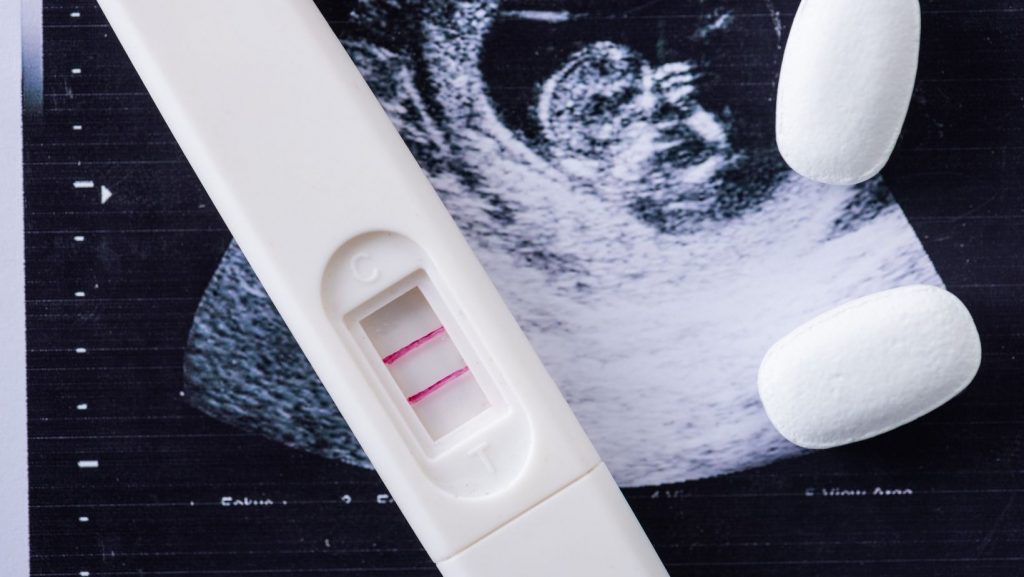By Bonnie Finnerty, Education Director

In 2020, over 16,000 women in Pennsylvania were given pills to abort their preborn children. For the first time, non-surgical abortions comprised 51% of abortions, the majority. While the 2020 PA Department of Health Abortion Statistic Report lists these abortions as “medical” they are also known as chemical abortions.
Chemical abortion involves two medications: mifeprex (mifepristone) which blocks progesterone, cutting off nourishment, and misoprostel, which causes contractions, expelling the preborn child from the uterus.
The Food and Drug Administration does not recommend chemical abortion beyond the 10th week of pregnancy, stating on their website that a woman should not take Mifeprex if it has been more than 70 days since the first day of her last menstrual period.
Despite abortion industry claims, chemical abortions are not safe, having a complication rate that is four times that of first trimester surgical abortions.
In fact the FDA website acknowledges there were reports of 26 deaths of women associated with mifepristone since the product was approved in September 2000.
In addition, more than 4000 adverse events have been associated with chemical abortion, but the actual number is likely much higher as mandatory reporting of adverse effects was suspended in 2016.
While chemical abortion by its very nature is dangerous and traumatic when given within recommended FDA guidelines, it is even more so when done outside of them.
That is why the 2020 PA Department of Health Abortion Statistic Report is so alarming. It shows that a total of 175 abortions were done after 10 weeks gestation in 2020.
Most shocking is that 26 chemical abortions occurred at 18-20 weeks gestation and 25 at 21-23 gestation. Not only are babies at these stages fully formed, much larger, and pain-capable, but many are viable.
Premature babies as young as 21 weeks are being treated and saved in neonatal units across our country. But according to this report, others are being killed by chemical abortions, most likely in someone’s bathroom.
The abortion pill was not designed for later abortions, which is why the FDA has not extended its use past 10 weeks.
With chemical abortion it is more likely that a woman will experience complications the further along she is in her pregnancy. These complications can include incomplete abortion, retained products of conception, excessive bleeding, and infection. The abortion pill failure rate also increases over time.
Another disturbing statistic from the Pennsylvania report shows a 344% increase in sharp curettage abortions in just one year, a procedure that is often used for incomplete abortions.
So while the report claims that there were fewer complications from abortion than in the previous year, the dramatic rise in the sharp curettage procedure, in which the uterus is scraped, may reflect a higher rate of failed chemical abortions.
So we must ask who is prescribing chemical abortions beyond their recommended time frame and why are they putting women’s health in jeopardy? Are women warned of the risks? Are they warned of the psychological impact of delivering not just “pregnancy tissue” but a fully formed lifeless baby?
We can and must do better. This is not health care. Or empowerment. Or reproductive justice. It is a betrayal of vulnerable women.
Every abortion steals an innocent human life. And every chemical abortion risks great harm to the mother, especially those done beyond the recommended guidelines.
It shouldn’t be happening in Pennsylvania or anywhere.

